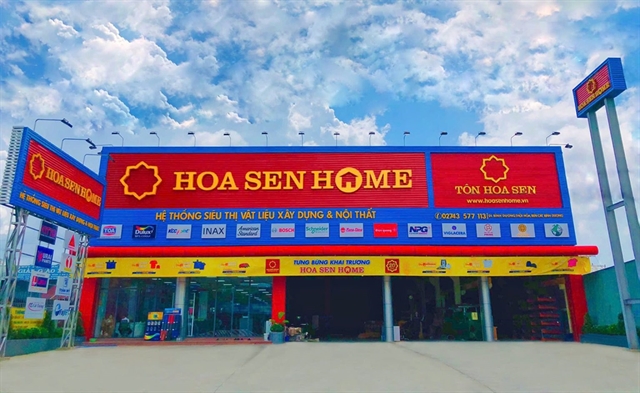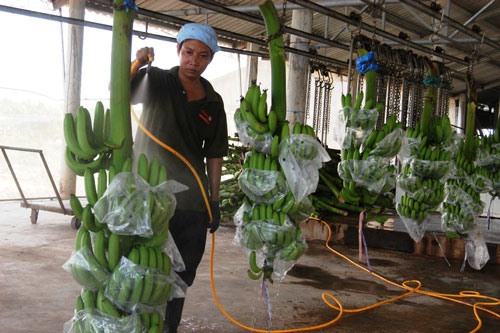 Economy
Economy

Around 40 leading Vietnamese export firms attended a conference on Việt Nam-Middle East business co-operation in Hà Nội on Monday.
 |
| A worker of the Huy Long An Ltd. in the southern province of Long An clean bananas for export. The company used to export bananas to the Middle East market but face difficulties in payment. — Photo nld.com.vn |
HÀ NỘI — Around 40 leading Vietnamese export firms attended a conference on Việt Nam-Middle East business co-operation in Hà Nội on Monday.
Addressing the event, Minister of Agriculture and Rural Development Nguyễn Xuân Cường said that the Middle East market is huge as well as a gateway to the European market.
Việt Nam hopes to export many agricultural products, including rice, tea, coffee, peppercorn, rubber, cashew, fruit and aquaculture products, to the 400 million population Middle East market, which comprises 16 countries.
However, Cường pointed out that the trade revenue between the two countries remains low because of difficulties in payment as both sides mostly pay via intermediary banks in Dubai, China and Singapore, or some European countries that incur a high cost.
The Middle East is a promising market for Vietnamese bananas, said Võ Quan Huy, director of Huy Long An Ltd., and asked for more effective measures to support exporters in payment as well as to improve the standards of goods exported to this market.
Lê Thành, head of the Organic Agriculture Institute, said the growth in vegetable exports to the Middle East is high at 24 per cent, which shows that it is a promising option for Vietnamese firms.
However, logistics and payment are issues that have hindered Việt Nam’s exports, he said, suggesting that more co-operation is also needed among firms.
Lê Quang Nhuận, general director of Louis Rice Export Import Ltd, agreed with Thành, and said that businesses exporting to the Middle East should join hands and sign a lease contract with a transport company for a reasonable rate as transport costs have a huge impact on the price of commodities.
Trần Văn Trí, chairman of the Việt Nam-Iran Business Council, proposed that the government speed up banking co-operation to facilitate financial transactions between the two countries, as well as preferential tax policies.
Saleh Adibi, Iranian Ambassador in Việt Nam, said the major obstacle hindering bilateral co-operation is banking. He suggested that Vietnamese firms use Iran’s banks as Iran is linked to many banks across the world, and hoped that Việt Nam and Iran would soon sign a preferential trade agreement.
Cường asked the ministry would coordinate with the Việt Nam Chamber of Commerce and Industry to support Vietnamese firms’ market expansion plans to the Middle East. The ministry would also work with the Ministry of Industry and Trade and the Việt Nam-Iran Business Council to prepare a trade promotion programme by the end of the year, he promised.
Statistics from the Ministry of Industry and Trade show that trade between Việt Nam and Middle Eastern countries has been rising for the past few years, reaching nearly US$10.9 billion in 2016, an increase of over 100 per cent from 2011.
Việt Nam exported $8 billion worth of goods to and imported $2.82 billion worth of goods from the market. — VNS